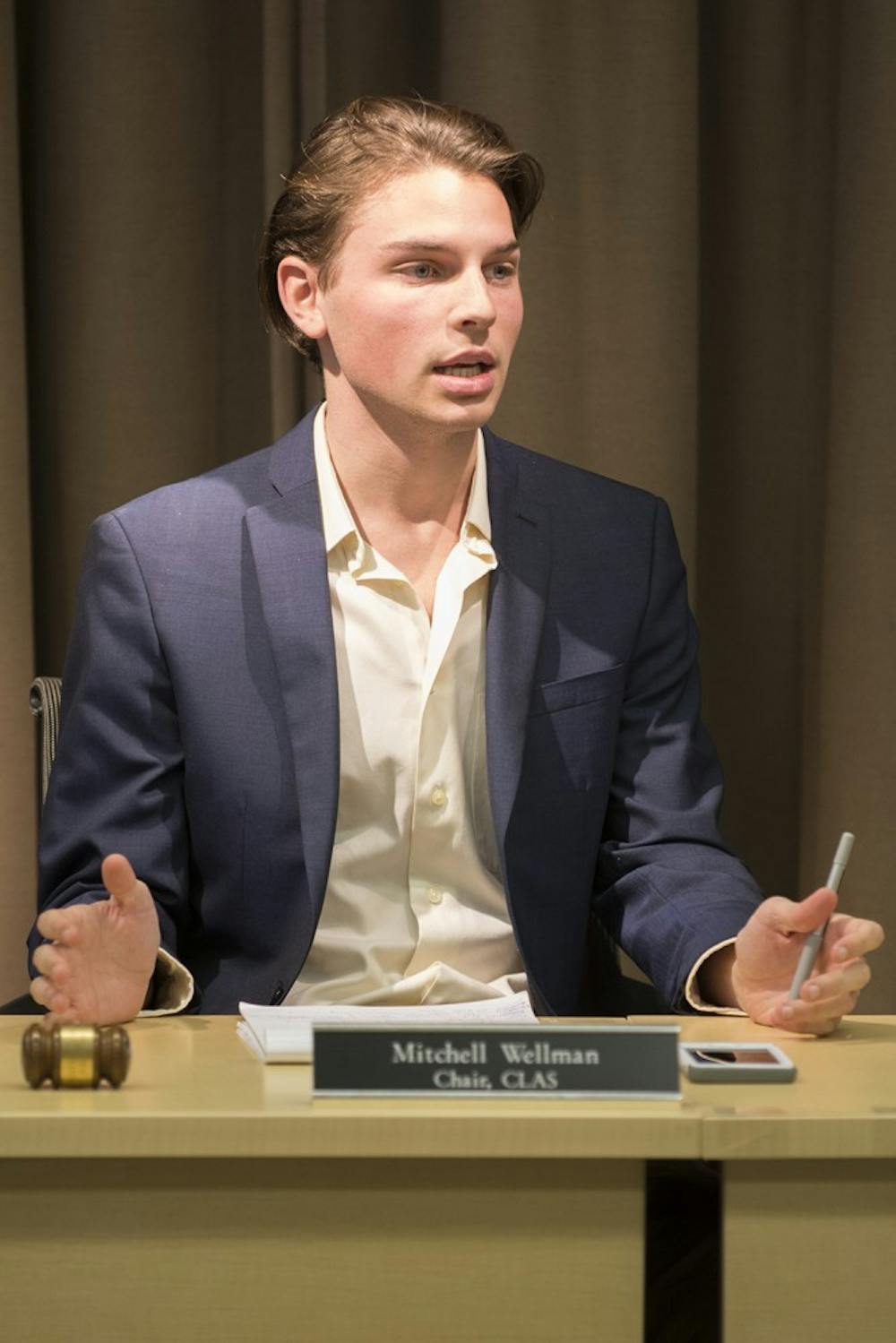Students will have the opportunity in the upcoming University-wide elections to vote on four amendments proposed by the University Judiciary Committee to update language and clarify ambiguities in the UJC constitution.
One of the referenda students will be able to vote on is a proposed expansion of protected categories under the Sanction Enhancement Clause of the UJC constitution, which provides for more serious sanctions for students found to have committed bias-motivation violations of the University standards of conduct. The amendment would add gender identity, marital status and family medical or genetic information to protect categories.
UJC Chair and fourth-year College student Mitchell Wellman said this update was not in response to any particular incident but rather to update the language of the constitution to match that of the University’s Office for Equal Opportunity and Civil Rights’ own policy regarding discrimination and harassment.
The University saw an increased number of bias-motivated incidents in the fall 2016 semester
“The incidents of last semester involving bias or seeming to involve bias put the change into perspective,” Wellman said. “Those of us who aware of the clause are even more aware of how necessary it is and how it’s a good thing that we’re keeping up with the language on it.”
A second proposed amendment aims to eliminate ambiguity in the steps required to propose future amendments to the UJC constitution. The constitution’s current wording is ambiguous as to whether an amendment would require both a petition and two-thirds vote of the entire University Judiciary Committee, or whether just either the petition or the vote would suffice.
“The more important thing was, in a world where we interpret it as a both-and, no one who wasn’t on UJC … would have been able to pass an amendment,” Casey Schmidt, chair of the University Board of Elections and a third-year College student, said. “It would have been restricted and an exclusive right of the committee unlike any other constitution which allows any student if they want to and get enough signatures to put something on the ballot.”
A third referenda proposes an update the UJC constitution with gender-inclusive language by replacing instances of words such as “his,” “he” or “chairman” with “his or her,” “he or she” or “chair,” respectively.
The fourth proposed amendment would update the constitution in regards to vacancies on UJC’s elected representative body.
“We currently reach out to the presidents of the school, notify them of the vacancy and request their help in locating a person or appointing a person to fill that representative spot from their school,” Wellman said. “That practice is enshrined in our bylaws but not in our constitution. [The referendum] will just solidify our constitution in that it will be much more faithful and representative of what we are actually doing.”
The same proposed amendment would also make graduate students who are in one-year degree programs eligible to seek election to UJC.
In order for any of the proposed amendments to pass, the questions must receive at least a two-thirds vote for approval, with at least 10 percent of the eligible voting population voting in favor.
“Our main concern is getting enough people to read over the changes and vote on all four parts of it. I don’t think that our challenge is going to be persuading people to vote yes over no. These are not very controversial changes,” Wellman said. “So that’s where I expect the challenge — just getting people to go out and vote, getting the 10 percent of the student body threshold requirement will be the challenge rather than the approval of whoever votes.”
According to UBE Referendum Liason and fourth-year College student Inez Lieber, there is no way to know how many students will vote on a given referendum since the outcome will depend on which referenda are popularized. However, she said UBE hopes a shortened voting period will help voters remember to vote.
“A lot of people just don’t see how these offices affect them and how much of a vehicle for change they can be. It’s not something we’ve really figured out how to solve. We can push a lot on our end and say ‘You should vote for this,’” Lieber said. “The challenge is how do you connect with these people? How do you communicate the effect that this could have?”
Students will have an opportunity to vote on the referenda when the voting period begins Tuesday, Feb. 21 at 10:00 a.m.







